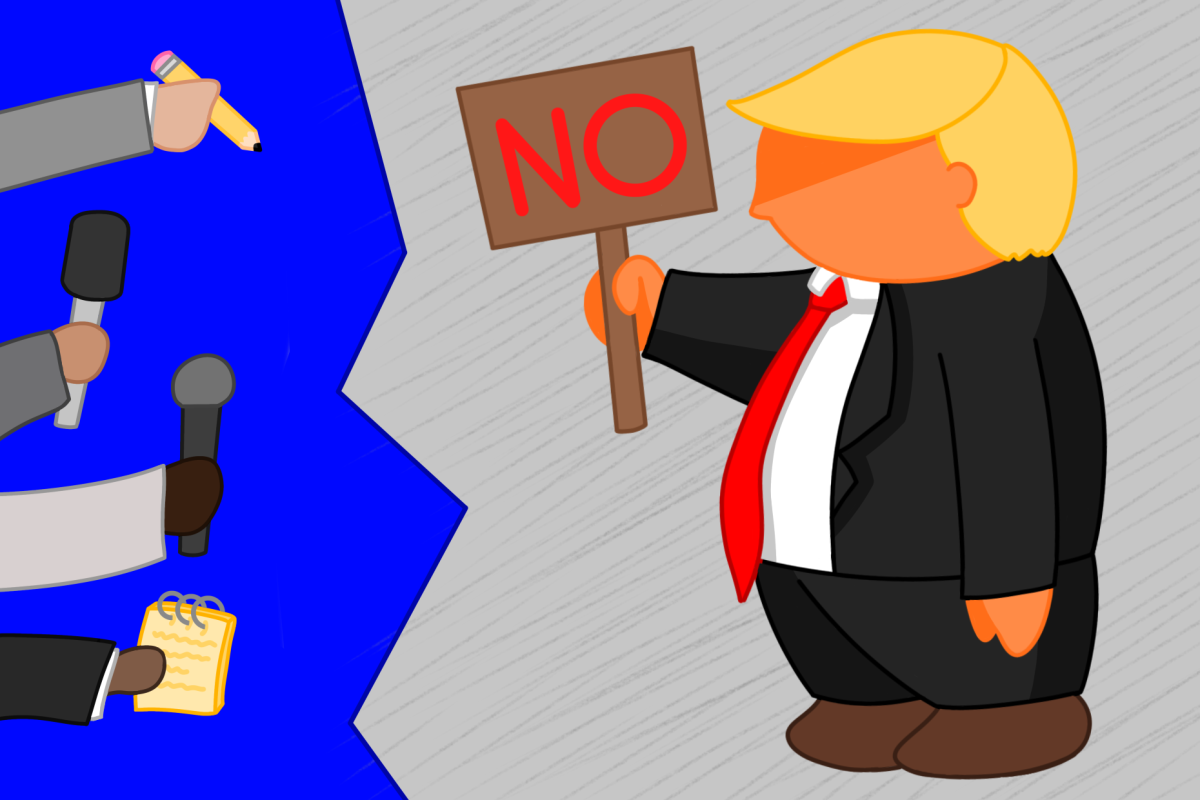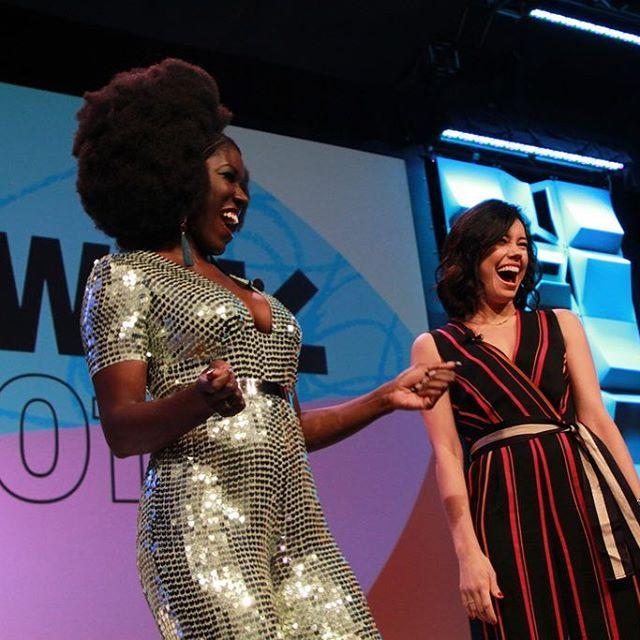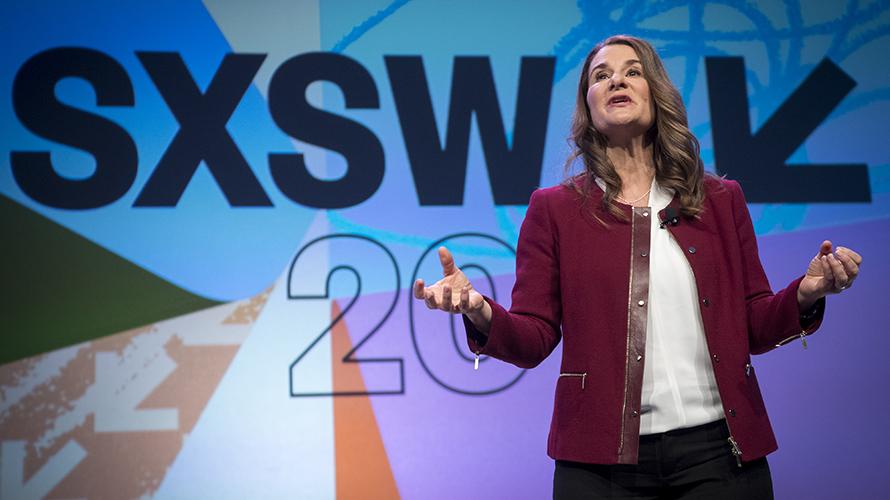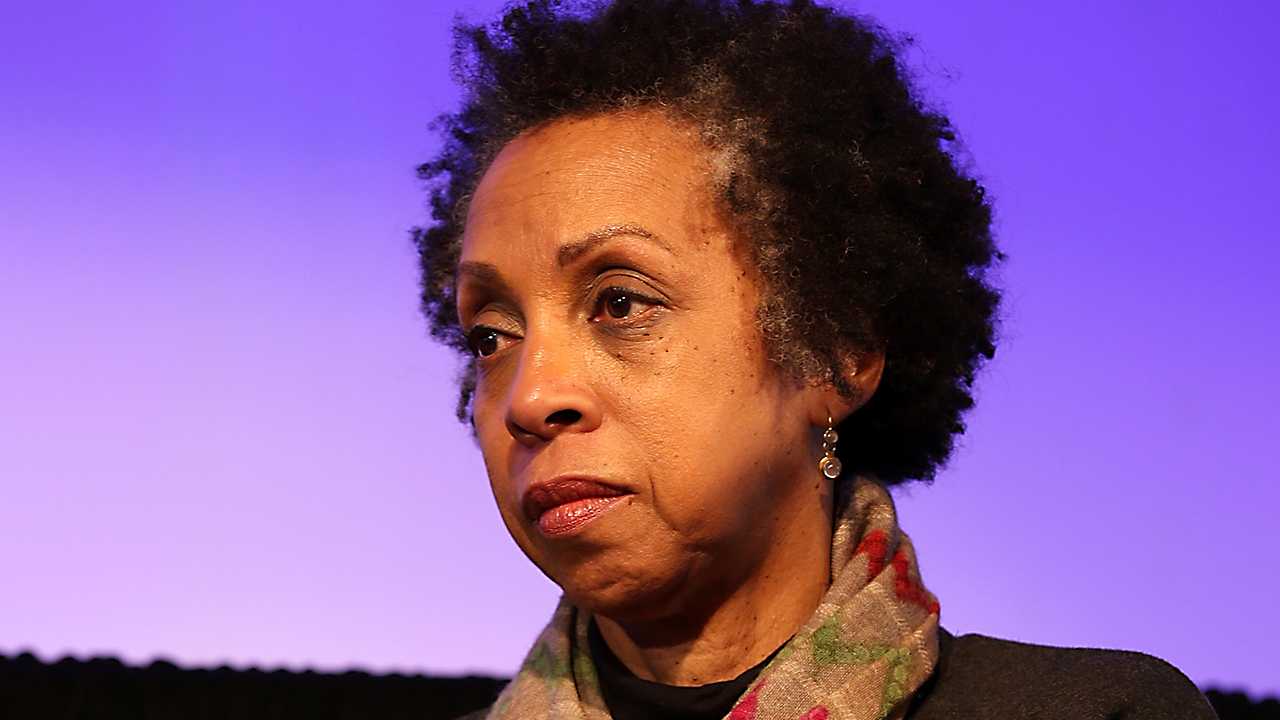South by Southwest is known for having its finger on the pulse of all things technology and business, and this year was no different. However, the bustling festival scene couldn’t escape the environment in which it exists – in a year of Amazon sex trafficking scandals, security breaches, Russian interference, Hollywood, Google and Uber harassment scandals, a serious look at the structure of certain industries had to be examined.
Story by Rochelle Friedewald
Even Elon Musk, famed entrepreneur, knew of the abuse of power at the top of the technology world. During his impromptu Q&A session, he talked of the potential threat the development of artificial intelligence would bring onto the human race if industry innovators are left to their own devices. “I’m not normally an advocate of regulation and oversight…but this is a case where you have a very serious danger to the public,” he says.
“AI is much more dangerous than the threat of nuclear warheads,” says Elon Musk. Photo Courtesy of CNN.
While a world of hyper intelligent robot overlords seems to be a thing of sci-fi movies, Musk has his reasons for being concerned that his colleagues will skirt morality for the sake of business as usual. With Facebook shrugging off blame for Russian cyber infiltration and covered up Uber information breaches, the tech giants of California are anything but upstanding. But Silicon Valley has been under the same speculation for years, even before the massive leaps in artificial intelligence came under the microscope. The industry has been riddled with horrifying sexism and a huge lack of diversity, a reputation that has given the swarm of white men at the helm the notorious “tech bro culture” label.
This topic of the negligence of the “tech bros” and all their misogynistic cronies, was the center of many conversations at the festival. During “The Future of Business is Female” talk, panelist Stephanie Lampkin, a Black female tech entrepreneur, talked about the cases of blatant misogynoir she has experienced in her career. She showed a video of angel investors scowling at the pitch for her then-unfunded startup, which uses artificial intelligence to mitigate unconscious gender and race bias in hiring. The all-white panel of judges, ironically playing into the statistic of notoriously underestimating and underinvesting in female tech entrepreneurs, simply didn’t think it was a necessary application even after being shown the facts: white sounding names on a resume are more likely to get a call back than black or Hispanic sounding names. Lampkin was even victim to this bias herself. As a graduate of both Stanford and MIT, she was told in an interview for Google that the technical position she was applying for was probably not the right fit and instead she should try with the marketing department. This attitude is reflected in the numbers as well – in 2016, Black and Latinx candidates combined made up about seven percent of Google’s new technical hires, with the number of Black and Latinx female hires even lower.
Saint John, the Black female branding director hired after Uber’s dismal diversity report showed no Black technical leaders, took her stage at the festival and deemed the diversity problem the responsibility of white men at the top, not Black females scrapping for their own unlikely chance. “I want white men to look around in their office and say, ‘Oh look, there’s a lot of white men here. Let’s change this,’” she says. When questioned about the theory that there just aren’t enough qualified female candidates and candidates of color in the pipeline, she kept it simple. “That’s bullsh*t.”
Saint John before her keynote. Photo Courtesy of Instagram.
In her keynote address, Melinda Gates echoed, perhaps less bluntly, that same sentiment. There are a large amount women applying to jobs in Silicon Valley, she says, yet they still make up only 30 percent of the workforce, with Black and Brown employees faring even worse. Like Lampkin’s diversity tech pitch, they experience even worse when seeking out venture capital funding, with only two percent of funding flowing their direction.
Gates attributes this “boy’s club attitudes” for their oversight. “It’s safe to invest in what you know, but they don’t see markets women [and people of color] see.” To attempt to correct this disparity, Gates leads a venture capital firm, Aspect Ventures, to disproportionately invest in these underrepresented groups. She feels it’s not only the right thing to do, but the most business savvy. This untapped market of ideas has potential to make a lot of money. In fact, statistics show that female-led VC-firms actually have higher return on investments, beating their male counterparts by 63 percent in terms of creating value for their investors. Ethically, companies also do better with women in board positions and leadership roles – female executives are more likely to adhere to morality clauses and ethical standards than their male counterparts, which could have saved companies like Facebook and Uber from disastrous scandals. All in all, women (especially of color) are better for business.
Melinda Gates at her keynote. Photo Courtesy of Austin 360.
Aside from simply the numbers, once women get fair play, they are subjected to horrendous abuse and harassment at the hands of their male colleagues. Even in the presence of Saint John and her unapologetically Black hair style, no one could forget about the 3,000 word essay Susan Fowler penned against the “brilliant jerks” at Uber and wonder if the subsequent fallout had any actual material impact on dissipating a culture built on exclusion. Her letter helped spark the revolution of #metoo, and one of the co-founders of the movement, entertainment lawyer Nina Shaw, joined Melinda Gates on stage to question the morality of the men surrounding women in the workplace.
We are their sisters, she remarked, and how could they do this to us, or stand by as it happens? Her emotional appeal begged the question – would a radical redesign of corporate structure be enough to stop the bro culture in its tracks? “There are so many great men,” Gates says in response to Shaw’s comments, reminding the audience that there are male allies in the workplace they could turn to. This distinction between the good and bad men, those who join us in the fight and those who we must inevitably and tirelessly fight for fair treatment, seemed to be recurring theme. Would it be this way forever?
“There are a lot of men waiting for this to be over,” say Shaw, in reference to #metoo. “This will never be over.” Photo Courtesy of Austin360.
In another session, seemingly unrelated to the tech talks of Musk and Gates, another facet of the solution was presented. Relationship psychotherapist and South by Southwest keynote speaker, Esther Perel talked about the aspects of female and male relationships not fixed by employment equity system. “At the age of four…we strip [boys] of their connectivity and instead put in there a making of a performance based masculinity.,” she says. “The lives of women will not change unless the lives of men change as well, it’s interdependent. We tell them that this is the time to shut up and listen when they should have conversations about themselves and about masculinity so we can create a more true equation.”















































